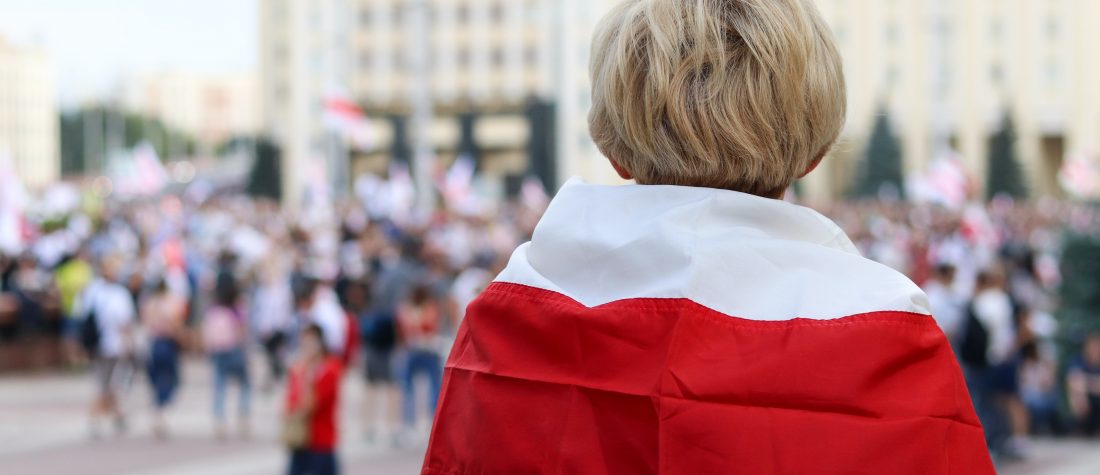A year has now passed since the highly contested elections in Belarus, which saw Lukashenko returned to power amidst allegations of corruption, voter suppression and intimidation. In the time since 9 August 2020, the regime has managed to carry out a campaign of terror against the opposition. It has arrested pro-democracy activists, snuffed out what little free press remained; and, in some of the grimmest cases, murdered opposition leaders.
Not since the darkest days of the Soviet Union has Eastern Europe seen such oppressive measures carried out by a regime against its people with such abandon. But what perhaps remains most disturbing is that Lukashenko has been able to get away with his purges without any major repercussions from the West.
In the last few months, he has been able to bring down a passenger jet to arrest a dissident; he has reignited the migrant crisis by importing people from Iraq and Syria; he has arrested opposition leaders across Belarus – as well as some outside the country – and he has been able to assassinate activists wherever they might be – most recently Vital Shyshou in a public park in Kyiv.
Where to start?
Lukashenko has only been able to get away with this long list of crimes against the rules-based international system because the West has failed to grasp the gravity of what is truly going on inside the country. Any single one of these actions alone should have been enough to trigger condemnation, but because the Lukashenko regime has acted so frantically, a sort of diplomatic sensory overload has taken place. It has become difficult for the old bureaucratic foreign ministries of Western Europe to devise a strategy.
Instead, leadership on the issue of Belarus has come from its near neighbours. Lithuania, for example, was the first to recognise Sviatlana Tsikhanouskaya, the former Presidential candidate, as the leader of the opposition – offering her and her family asylum in Vilnius. A few days after that the Polish Government offered Tsikhanouskaya and her team of dissidents the use of a building in Warsaw to organise from. Germany, France, the United Kingdom, United States and the EU itself were much slower to react.
Freedom needs protecting
Perhaps this stems from a position of comfort and complacency in the West. After all, those in government in Poland, and the Baltic states have the lived experience of life under an autocratic and repressive regime. Central Eastern Europe today has a much better understanding of what it means to live without freedom than the West does.
But that doesn’t mean that the West shouldn’t be unsympathetic. As US President Ronald Reagan famously put it: “freedom is never more than one generation away from extinction. We didn’t pass it to our children in the bloodstream. It must be fought for, protected, and handed on for them to do the same”.
We in the West should as such always be cautious of democratic backsliding when we see it. We should be the first to step forward and defend fledgling democracies around the world, from Iraq to Georgia, Ukraine to Venezuela. As such we must come up with a new strategy for Belarus, it simply isn’t enough to invite Tsikhanouskaya to meet our heads of government for a photo, when there are real concrete answers.
It’s time to de-recognise
Amongst them are the transfer of recognition, as in the example of the Syria in 2012 when several governments switched their diplomatic support from the Assad regime to that of opposition forces. Likewise in early 2019 the United States and United Kingdom ended their recognition of the Maduro regime in Venezuela, instead opting to support the opposition leadership of Juan Guaidó.
Money as a means
However, whilst recognition is a start, it doesn’t go far enough. In both of the previously mentioned cases, when government and media attention was lost, so too was the ability for the opposition to act with full Western support. An opposition government needs resources to be effective.
The transfer of Belarusian assets outside of the country, especially in European and American banks, to the opposition could go some way to supporting their work in enacting bringing about change in the region. Equally, transferring foreign development aid towards pro-democracy groups would provide them with vital support.
Targeted sanctions
Another means of supporting the opposition whilst at the same time punishing the regime would be to introduce a new round of Magnitsky measures against the leadership. Those at the heart of the Belarusian regime would feel the brunt of the sanctions as opposed to the people, who tend to suffer more under the generic economic embargoes. Resources frozen in the West could then be handed over to the shadow government.
From one democracy to another…
Finally, there is the need for institutional support. That is to say offering the help of civil servants and political advisors to prepare for a transition of power. One of the great failings of the post-Cold War era was that many of the new republicans in Eastern Europe and Central Asia did not receive adequate democratic support and thus fell back into the trap of authoritarianism. In many ways Belarus was never given a fair chance at becoming a democracy the first-time round, a mistake that should not be repeated now.
Remember from whence we came
The West used to stand as a shining city on a hill, a beacon for democracy from which other nations could adjust their course and follow their example of embracing freedom. Today we have lost sight of what it is we are supposed to be defending – however it is not too late for us to return to a position in which we are able to support those who want to embrace liberty around the world.


